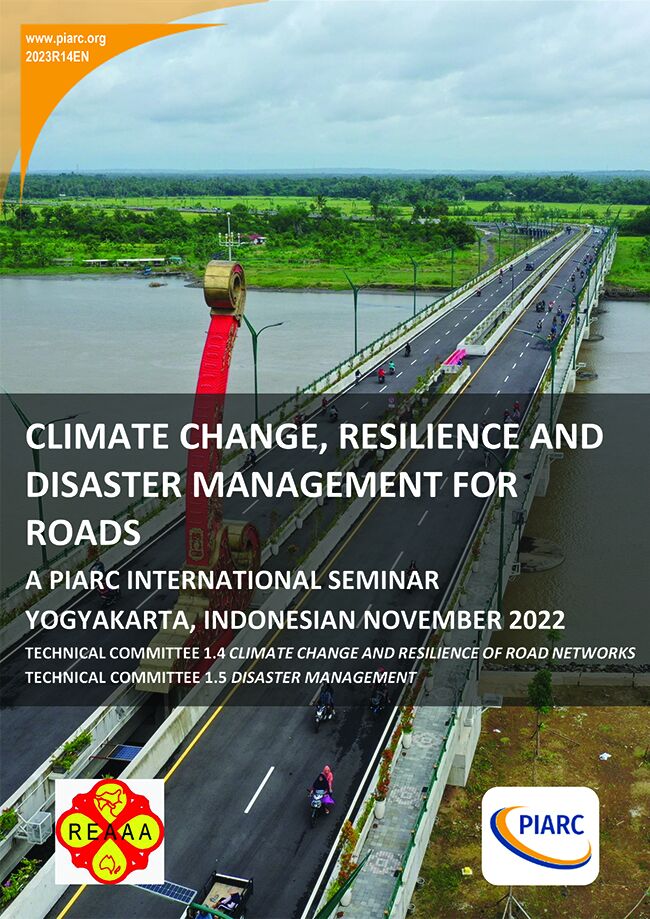Climate Change, Resilience and Disaster Management for Roads - Seminar

Climate change and other hazards have a wide range of implications on the performance of road infrastructure and can cause disruptions to road network operations. For example, extreme rainfall influences the intensity beyond the drainage capacity of roadways, resulting in slope collapses and landslides as well as traffic disruption.
These traffic disruptions will lead to an increase in traffic accidents and restrictions. On the other hand, disasters cause significant loss of life each year throughout the world, as well as significant material and intangible damage. Damage to hundreds of kilometres of road and bridge infrastructure has occurred across Indonesia during the previous 20 years. The rising prevalence of traffic disruptions, as well as the severely damaged road and bridge infrastructure, has a direct correlation with stifling economic activity and the increase in road trauma.
Disaster mitigation is needed to lessen the impact disasters have on people and property, particularly on the road infrastructure. The development of uniform and holistic methodologies, and adaptation frameworks to address climate change and other hazards plays a significant role in making road transport infrastructure more resilient.
The aim of the International Climate Change, Resilience, and Disaster Management for Roads Seminar was to share expertise and offer relevant recommendations so that effective solutions and countermeasures could be proposed, taking into consideration the unique characteristics of each country: location. financial, logistic, existing networks, strategies currently in place, and so on. The Seminar also sought to provide an overview of the challenges associated with managing climatic impacts and road resilience by presenting approaches and case studies from different countries.
The purpose of the Seminar was to share knowledge with local authorities, administrators, the private sector, and those responsible for road traffic and safety, design engineers, design consultants, road network administrators, contractors, control and technical assistance consultants, academics, researchers, engineering students interested in the subject, and experts in other domains of expertise related to climate change, resilience, and disaster management for roads.
Information sheet
- Date: 2023
- Author(s): Comité technique / Technical Committee / Comité Técnico 2020-2023 1.4 Changement climatique et résilience du réseau routier / Comité technique / Technical Committee / Comité Técnico 2020-2023 1.5 - Gestion des Catastrophes / Disaster Management / Gestión de Catástrofes
- Domain(s): Environment / Risk Management / Road Assets Management
- Type: 2023R14EN - Seminar
- PIARC Ref.: 2023R14EN
- ISBN: 978-2-84060-777-9
- Number of pages: 59